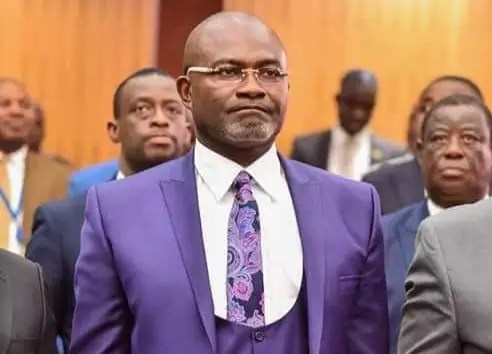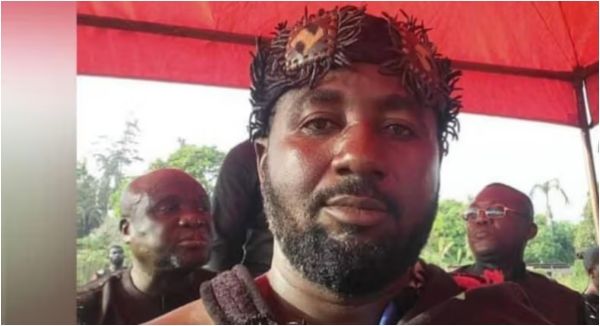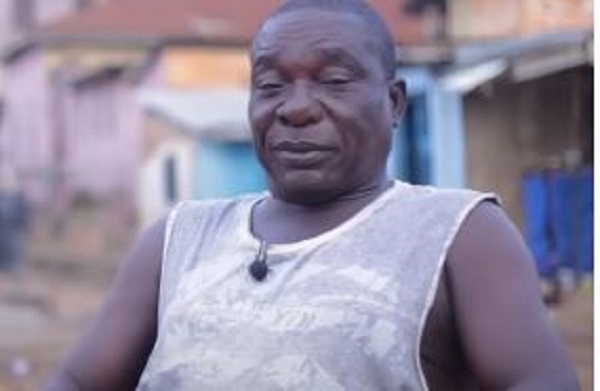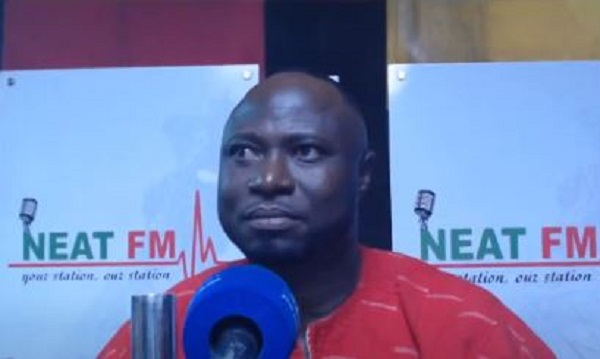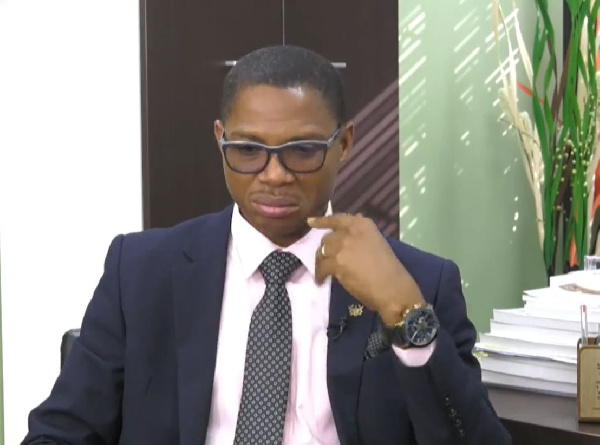
The real reason court ordered the arrest of Sosu

Court orders arrest of Madina MP
Francis-Xavier Sosu led a demonstration in his constituency
Madina MP was not in court for the third consecutive time
Any time from now, the Member of Parliament for Madina, Francis-Xavier Sosu, could be in the grips of the police.
This is after the Kaneshie District Court ordered the arrest of the MP on Monday, November 29, 2021.
The Ghana Police Service instituted criminal proceedings against the MP after he led his constituents to demonstrate against bad roads on October 25, 2021.
Mr. Sosu is accused and standing trial for unlawfully blocking roads and causing destruction to public property in a demonstration he led in his constituency against bad roads over a month ago.
He has, since the commencement of the case, not appeared in court, with the Speaker of Parliament, Alban Bagbin, writing to the sitting judge on two occasions to inform him that the MP was out of the country on official duty.
But exactly why was the court compelled to issue this order for his arrest?
It has emerged that the Madina MP, Francis-Xavier Sosu was not in court for the third consecutive time since his case started in the court.
This was also beside the fact that the MP had been avoiding arrest from the police for a long, with a very recent case in point being when the MP had to be whisked away from a church in his constituency on Sunday.
This was after it was rumoured that some plain-clothed policemen were spotted at the church purportedly to effect his arrest.
But in the court’s decision on Monday, much as the court was informed that Francis-Xavier Sosu was in parliament at the time of the hearing as the Constitutional, Legal and Parliamentary Affairs Committee, which he is a member of, was also sitting.
The law in Articles 117 and 118 states the position of this matter:
Article 117 says that “civil or criminal processes coming from any court or place out of Parliament shall not be served on, or executed in relations to, the Speaker or a member or the Clerk to Parliament while he is on his way to, attending at or returning from, any proceedings of parliament.”
Article 118 also states that “(1) Neither the Speaker, nor a member of, nor the Clerk to, Parliament shall be compelled, while attending Parliament to appear as a witness in any court or place out of Parliament.
“(2) The certificate of the Speaker that a member or the Clerk is attending the proceedings of Parliament is conclusive evidence of attendance at Parliament.
But the interpretation and the position of the law on arresting Members of Parliament have had many different interpretations and here are some of them, as reported by pulse.com.gh:
Prof. Kofi Abotsi, Dean of Faculty of Law of the University of Professional Studies, Accra
“The police are not duty-bound to inform or seek the permission of the Speaker before effecting an arrest of an MP. The authority of the Police to arrest extends to everyone except the President. An MP can only evade an arrest if he is on his way from or to Parliament.”
Ace Ankomah
“I believe that maybe Article 117 and 118 are being overextended by Parliament to protect itself. How do you resolve this? I think you should issue a criminal summons and then go to the Supreme Court for an interpretation of 117 and 118.”
ACP Kwesi Ofori, Director-General of Public Affairs of the Ghana Police Service
“We are in a democratic country. The police have options. Even if it comes to the interpretation of that clause in the Supreme Court, the police are prepared to do it,” ACP Ofori said.

Francis-Xavier Sosu led a demonstration in his constituency
Madina MP was not in court for the third consecutive time
Any time from now, the Member of Parliament for Madina, Francis-Xavier Sosu, could be in the grips of the police.
This is after the Kaneshie District Court ordered the arrest of the MP on Monday, November 29, 2021.
The Ghana Police Service instituted criminal proceedings against the MP after he led his constituents to demonstrate against bad roads on October 25, 2021.
Mr. Sosu is accused and standing trial for unlawfully blocking roads and causing destruction to public property in a demonstration he led in his constituency against bad roads over a month ago.
He has, since the commencement of the case, not appeared in court, with the Speaker of Parliament, Alban Bagbin, writing to the sitting judge on two occasions to inform him that the MP was out of the country on official duty.
But exactly why was the court compelled to issue this order for his arrest?
It has emerged that the Madina MP, Francis-Xavier Sosu was not in court for the third consecutive time since his case started in the court.
This was also beside the fact that the MP had been avoiding arrest from the police for a long, with a very recent case in point being when the MP had to be whisked away from a church in his constituency on Sunday.
This was after it was rumoured that some plain-clothed policemen were spotted at the church purportedly to effect his arrest.
But in the court’s decision on Monday, much as the court was informed that Francis-Xavier Sosu was in parliament at the time of the hearing as the Constitutional, Legal and Parliamentary Affairs Committee, which he is a member of, was also sitting.
The law in Articles 117 and 118 states the position of this matter:
Article 117 says that “civil or criminal processes coming from any court or place out of Parliament shall not be served on, or executed in relations to, the Speaker or a member or the Clerk to Parliament while he is on his way to, attending at or returning from, any proceedings of parliament.”
Article 118 also states that “(1) Neither the Speaker, nor a member of, nor the Clerk to, Parliament shall be compelled, while attending Parliament to appear as a witness in any court or place out of Parliament.
“(2) The certificate of the Speaker that a member or the Clerk is attending the proceedings of Parliament is conclusive evidence of attendance at Parliament.
But the interpretation and the position of the law on arresting Members of Parliament have had many different interpretations and here are some of them, as reported by pulse.com.gh:
Prof. Kofi Abotsi, Dean of Faculty of Law of the University of Professional Studies, Accra
“The police are not duty-bound to inform or seek the permission of the Speaker before effecting an arrest of an MP. The authority of the Police to arrest extends to everyone except the President. An MP can only evade an arrest if he is on his way from or to Parliament.”
Ace Ankomah
“I believe that maybe Article 117 and 118 are being overextended by Parliament to protect itself. How do you resolve this? I think you should issue a criminal summons and then go to the Supreme Court for an interpretation of 117 and 118.”
ACP Kwesi Ofori, Director-General of Public Affairs of the Ghana Police Service
“We are in a democratic country. The police have options. Even if it comes to the interpretation of that clause in the Supreme Court, the police are prepared to do it,” ACP Ofori said.

Source: ghanaweb.com
Source:
GhanaWeb
Scroll to Top


